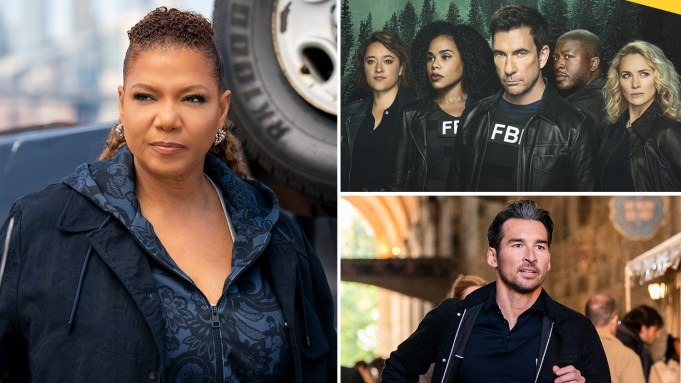
📺 Why Two ‘FBI’ Shows (And ‘The Equalizer’) Actually Got Canceled, According to CBS
The TV world is full of surprises, but few hit harder than learning your favorite primetime drama won’t be coming back. CBS recently made waves by canceling not just one, but three major procedurals: two from the ever-popular FBI franchise and The Equalizer reboot starring Queen Latifah. Fans were blindsided. So, what really happened?
Let’s dive deep into CBS’s reasoning, the behind-the-scenes politics, and why network television might never look the same again.
🔥 The Procedural Powerhouses: What Was Canceled?
FBI: International – Once a Global Hit
CBS’s FBI: International launched with promise. With a Euro-centric twist on the procedural format, it followed the elite Fly Team as they tackled criminal threats overseas.
FBI: Most Wanted – Ratings Winner, But Not Immune
FBI: Most Wanted had a strong fanbase and was often praised for its gripping manhunts and action-packed pacing.
The Equalizer – Queen Latifah’s Comeback Role
Queen Latifah brought star power and a modern feminist edge to The Equalizer, reimagining the classic ’80s series with a contemporary, socially aware lens.
So, why axe three recognizable brands? The answers aren’t as simple as low ratings.
📉 It Wasn’t Just About Ratings – Here’s What CBS Said
1. Rising Production Costs
Let’s face it: TV isn’t cheap. Especially when you’re filming globally like in FBI: International. CBS quietly acknowledged that the economics of producing high-concept procedurals abroad became unsustainable.
“The financial model changed,” a CBS executive reportedly said. “It’s no longer feasible to produce at that scale.”
2. The Streaming Factor
CBS isn’t just CBS anymore—it’s part of Paramount Global. That means streaming is part of the conversation. If a show doesn’t move the needle on Paramount+, it’s at risk.
Even if a procedural gets solid live ratings, if it isn’t performing on-demand or internationally, its future becomes shaky.
🎯 CBS’s New Strategy: Quality Over Quantity
Less Is More in 2025
Network TV used to live on volume. Now? CBS is trimming the fat. They’re focusing on fewer scripted shows, with higher potential ROI (return on investment), and leaning more into unscripted content, sports, and live events.
Procedurals aren’t going away—they’re just no longer bulletproof.
Shifting Focus to Core Brands
CBS wants to double down on fewer, stronger brands. The original FBI series is safe. So is NCIS. But spinoffs? They’re expendable unless they become undeniable hits.
💰 The Budget vs. Benefit Equation
High Budget, Low Flexibility
Shows like The Equalizer and FBI: International were expensive to make. Queen Latifah’s contract alone likely took a big chunk of the budget.
Combine that with rising production costs, international filming, union requirements, and inflation—and you’ve got a financial headache.
Streaming Revenue Didn’t Make Up the Difference
Unlike Netflix originals, these CBS shows weren’t pulling in massive global streaming audiences. That made it harder to justify renewing them.

🛠️ The Network Is Remodeling, Not Breaking Down
A Leaner, Meaner CBS
Think of CBS like a house being remodeled. Some old rooms had to be knocked down (Equalizer, FBI: International) so new ones (Tracker, NCIS: Origins) can be built.
The network is still deeply invested in drama—but it’s evolving with the times.
🎬 How The Cancellations Impact Hollywood
Less Job Stability for Cast & Crew
Behind every canceled show are hundreds of jobs—actors, writers, camera crews, makeup artists. These cuts send a ripple through the industry.
Viewers Losing Trust?
There’s a growing sense among audiences: “Why get attached?” When even well-performing shows get axed, viewer loyalty takes a hit.
🌎 International Production: Blessing or Burden?
FBI: International’s Unique Challenge
While filming abroad gave FBI: International its unique flavor, it also meant higher production costs, visa complications, and scheduling delays.
In the end, CBS decided it just wasn’t worth it anymore.
👑 The Equalizer’s Identity Crisis
Star Power vs. Storytelling
Queen Latifah carried The Equalizer, but critics often pointed to inconsistent writing and weak supporting characters.
It started strong, but by season three, the show lacked creative momentum. Even Latifah’s gravitas couldn’t save it.
🧨 Network TV Faces a Ticking Clock
Why Procedurals Are No Longer Safe
In a world where content is consumed on-demand, serialized storytelling is winning the race. Procedurals need reinvention to stay relevant.
Younger Audiences Are Tuning Out
Millennials and Gen Z prefer binge-worthy, plot-driven shows. CBS’s aging demographic isn’t a long-term strategy. The network knows this.
📈 What’s Replacing These Shows?
New Dramas and Reality TV
CBS plans to fill the void with new scripted projects (NCIS: Origins and Tracker are priorities) and expand its unscripted catalog—think Survivor, Big Brother, and new reality formats.
More Franchise Consolidation
Don’t expect the FBI brand to vanish. CBS may bring new life to the original show or develop another spinoff down the line, possibly with cheaper, stateside production.
📣 What The Fans Are Saying
Outrage and Sadness
Social media lit up after the announcements. Fans expressed shock and disappointment, especially over The Equalizer, which had a strong social justice message.
Petitions and Hashtags
#SaveTheEqualizer and #BringBackFBIIntl began trending. As of now, CBS hasn’t shown signs of reversing course.
🚪 Is There Hope for a Revival?
Never Say Never
We’ve seen it before—Brooklyn Nine-Nine, Lucifer, even Magnum P.I. were canceled and later revived by other networks or platforms.
If fan pressure stays hot, streamers like Netflix or Amazon could swoop in. But don’t hold your breath.
🧭 Where CBS Is Heading From Here
CBS is steering the ship toward a future that prioritizes adaptability over tradition. It’s not personal—it’s business. Unfortunately, that business left some fan favorites behind.
In the end, these cancellations are a wake-up call—not just for CBS, but for all of broadcast television. The old rules no longer apply.
✅ Conclusion: What We Learned from CBS’s Big Moves
The cancellations of FBI: International, FBI: Most Wanted, and The Equalizer weren’t flukes—they were calculated decisions in a rapidly changing entertainment landscape. CBS is tightening its budget, targeting younger viewers, and pushing shows that can live on both broadcast and streaming.
It’s the dawn of a new era for network television. Whether fans like it or not, shows must do more than pull in ratings—they need to justify every dollar spent and work across platforms. In this new game, even hit shows aren’t safe.
❓FAQs
1. Why did CBS cancel The Equalizer despite decent ratings?
CBS cited rising production costs and shifting priorities toward streaming-friendly, more financially sustainable programming.
2. Are there any plans to revive the canceled FBI shows?
As of now, CBS has no public plans to revive FBI: International or FBI: Most Wanted, but revival on a different platform is always possible.
3. Will Queen Latifah return to TV in another CBS show?
There are no official announcements, but given her strong performance, she may collaborate with the network in the future.
4. What shows are replacing The Equalizer and FBI spinoffs?
CBS is focused on NCIS: Origins, Tracker, and expanding its unscripted content lineup for broader appeal.
5. How are fans reacting to these cancellations?
Many fans expressed disappointment online, launching petitions and social media campaigns in hopes of bringing the shows back.
Would you like me to create a follow-up piece on “The Equalizer’s Behind-the-Scenes Drama” or “The Future of the FBI Franchise at CBS”?